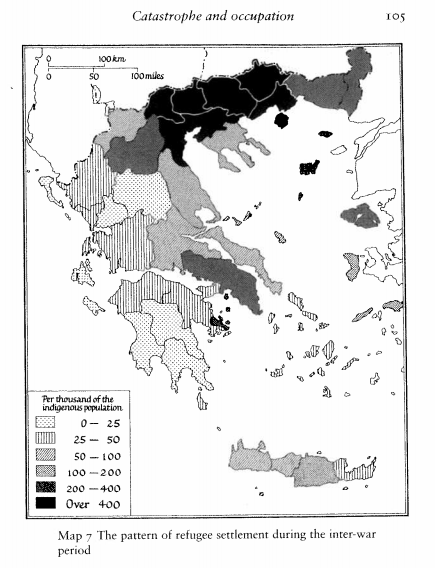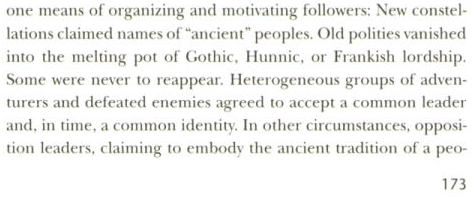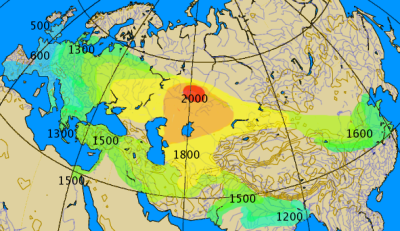Similarity of Y-DNA haplogroups:
Macedonians* --- Greeks** // % of similarity:
I = 31,3 ----------------- 15,1 // 15,1
R1a = 14,2 ------------- 12,0 // 12,0
R1b = 11,4 ------------- 16,9 // 11,4
E1b = 18,0 ------------- 21,0 // 18,0
G2 = 3,8 ---------------- 6,3 // 3,8
J2 = 12,7 --------------- 20,1 // 12,7
J1 = 3,3 ----------------- 4,3 // 3,3
LT = 2,4 ----------------- 3,2 // 2,4
other = 2,9 ------------- 1,1 // ??? / 1,1
TOTAL ====================
78,7 - 79,8%
Macedonians --- Poles // % of similarity:
I = 31,3 ----------------- 16,1 // 16,1
R1a = 14,2 ------------- 55,1 // 14,2
R1b = 11,4 ------------- 12,6 // 11,4
E1b = 18,0 ------------- 2,7 // 2,7
G2 = 3,8 ---------------- 1,3 // 1,3
J2 = 12,7 --------------- 3,6 // 3,6
J1 = 3,3 ----------------- 0,2 // 0,2
T = 1,9 ----------------- 0,5 // 0,5
N = 0,5 ----------------- 5,8 // 0,5
other = 2,9 ------------- 2,6 // ??? / 2,6
TOTAL ====================
50,5 - 53,1%
---------------------------------------
---------------------------------------
*Ethnic Macedonians (Albanians etc. not included):
http://www.eupedia.com/forum/threads/26187-Macedonians?p=391420&viewfull=1#post391420
**Sample of 1038 Greeks:
http://www.eupedia.com/forum/threads/26644-Y-DNA-haplogroups-of-Greeks-by-region-of-origin













